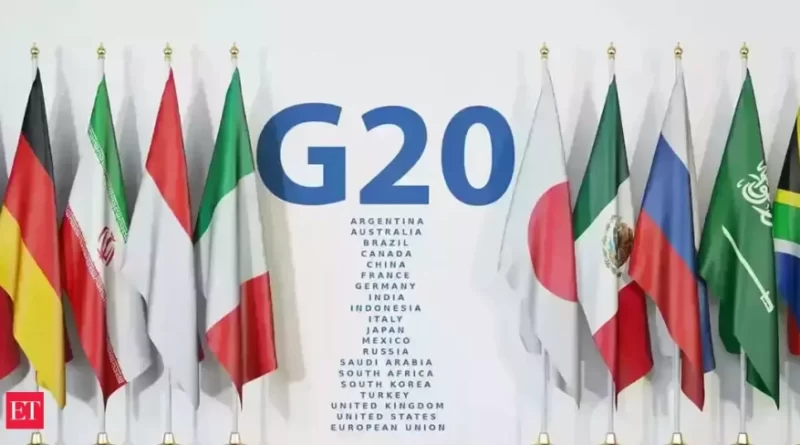India Pushes for a Global Digital Asset Regulatory Framework at G20 Presidency
India is doubling down on its efforts to achieve a global digital asset framework through its G20 presidency. Finance Minister Nirmala Sitharaman recently reiterated the government’s position during a discussion at the Peterson Institute for International Economics, stating that developments are at advanced stages. She confirmed that cryptocurrencies are an important part of the discussion under the G20 India presidency, given the many collapses and shocks in the market.
Developing a Global Regulatory Framework
India announced its interest in spearheading a concerted digital asset regulatory framework for G20 nations when it took on the role of president in November 2022. Sitharaman noted that it would be impossible for countries to individually craft regulations for digital currencies in their jurisdiction because digital currencies are inherently borderless. She stated that a global outlook will prevent bad actors from profiting from regulatory arbitrage and provide a blueprint for member countries to police the sector.
🇮🇳 BREAKING: India’s Finance Minister drops bombshell at G20 Finance & Central Bank Deputies Meetings!
You won’t believe what she said about #crypto assets 😳
A thread 🧵 pic.twitter.com/u8q6EABaGa
— Keyur Rohit (@CryptoKingKeyur) April 14, 2023
India’s push for a global regulatory framework is gaining momentum. At the first G20 Finance Ministers and Central Bank Governors (FMCBG) meeting in February, attendees agreed on ideas for draft regulation. The International Monetary Fund (IMF) and the Bank for International Settlements (BIS) revealed that they would be working on a joint report to support the G20’s push for a common framework to mitigate digital currency risks.
Tough Stance on Digital Assets in India
Despite India’s push for global digital currency regulation, the ecosystem could face a difficult patch in the coming months given India’s tough stance on the asset class. The country has not imposed any bans on digital assets, but its tax policy is described as some of the toughest in the world. Investors in the space are expected to pay 30% tax on gains and an additional 1% tax deductible at source (TDS). The government remains resolute in its decision.
India Views Blockchain Technology Favorably
Despite its tough stance on digital currencies, the Indian government views blockchain technology favorably. The government is targeting nearly 50% adoption of blockchain technology and has already deployed it in several government processes such as the land registry and forensics by New Delhi’s Forensic Science Laboratory (FSL). This indicates that the government recognizes the potential of blockchain technology in improving transparency, security, and efficiency in various sectors.
***
Post Views: 4,587

